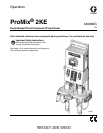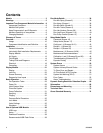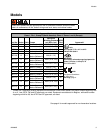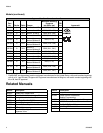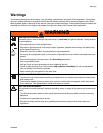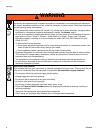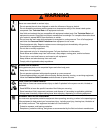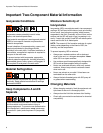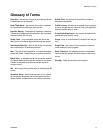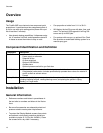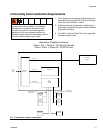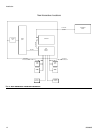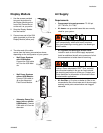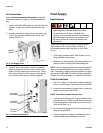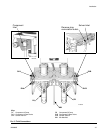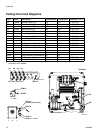
Warnings
6 3A0868G
INTRINSIC SAFETY
Intrinsically safe equipment that is installed improperly or connected to non-intrinsically safe equipment
will create a hazardous condition and can cause fire, explosion, or electric shock. Follow local regulations
and the following safety requirements.
• Only models with model numbers 24F102-24F115, utilizing the air-driven alternator, are approved for
installation in a Hazardous (explosive atmosphere) Location. See Models, page 3.
• Be sure your installation complies with national, state, and local codes for the installation of electrical
apparatus in a Class I, Group D, Division 1 (North America) or Class I, Zones 1 and 2 (Europe)
Hazardous Location, including all of the local safety fire codes, NFPA 33, NEC 500 and 516, and
OSHA 1910.107.
• To help prevent fire and explosion:
• Do not install equipment approved only for a non-hazardous location in a hazardous location. See
model ID label for the intrinsic safety rating of your model.
• Do not substitute system components as this may impair intrinsic safety.
• Equipment that comes in contact with the intrinsically safe terminals must be rated for Intrinsic Safety.
This includes DC voltage meters, ohmmeters, cables, and connections. Remove the unit from the
hazardous area when troubleshooting.
• The equipment is intrinsically safe when no external electrical components are connected to it.
• Do not connect, download, or remove USB device unless unit is removed from the hazardous
(explosive atmosphere) location.
SKIN INJECTION HAZARD
High-pressure fluid from gun, hose leaks, or ruptured components will pierce skin. This may look like just
a cut, but it is a serious injury that can result in amputation. Get immediate surgical treatment.
• Do not spray without tip guard and trigger guard installed.
• Engage trigger lock when not spraying.
• Do not point gun at anyone or at any part of the body.
• Do not put your hand over the spray tip.
• Do not stop or deflect leaks with your hand, body, glove, or rag.
• Follow the Pressure Relief Procedure when you stop spraying and before cleaning, checking, or
servicing equipment.
• Tighten all fluid connections before operating the equipment.
• Check hoses and couplings daily. Replace worn or damaged parts immediately.
WARNING



